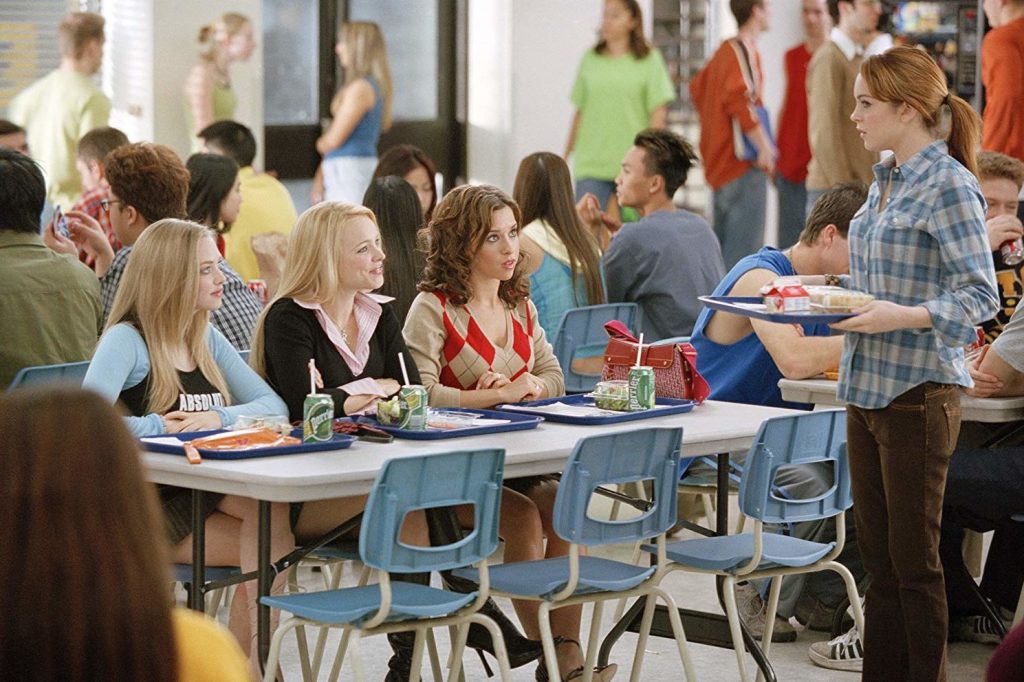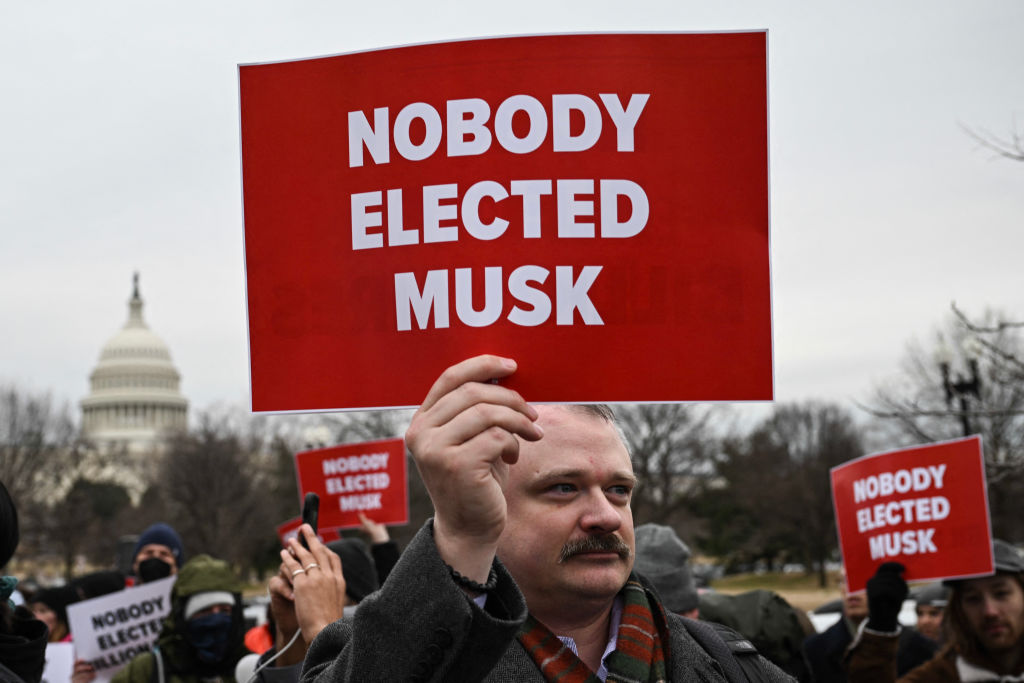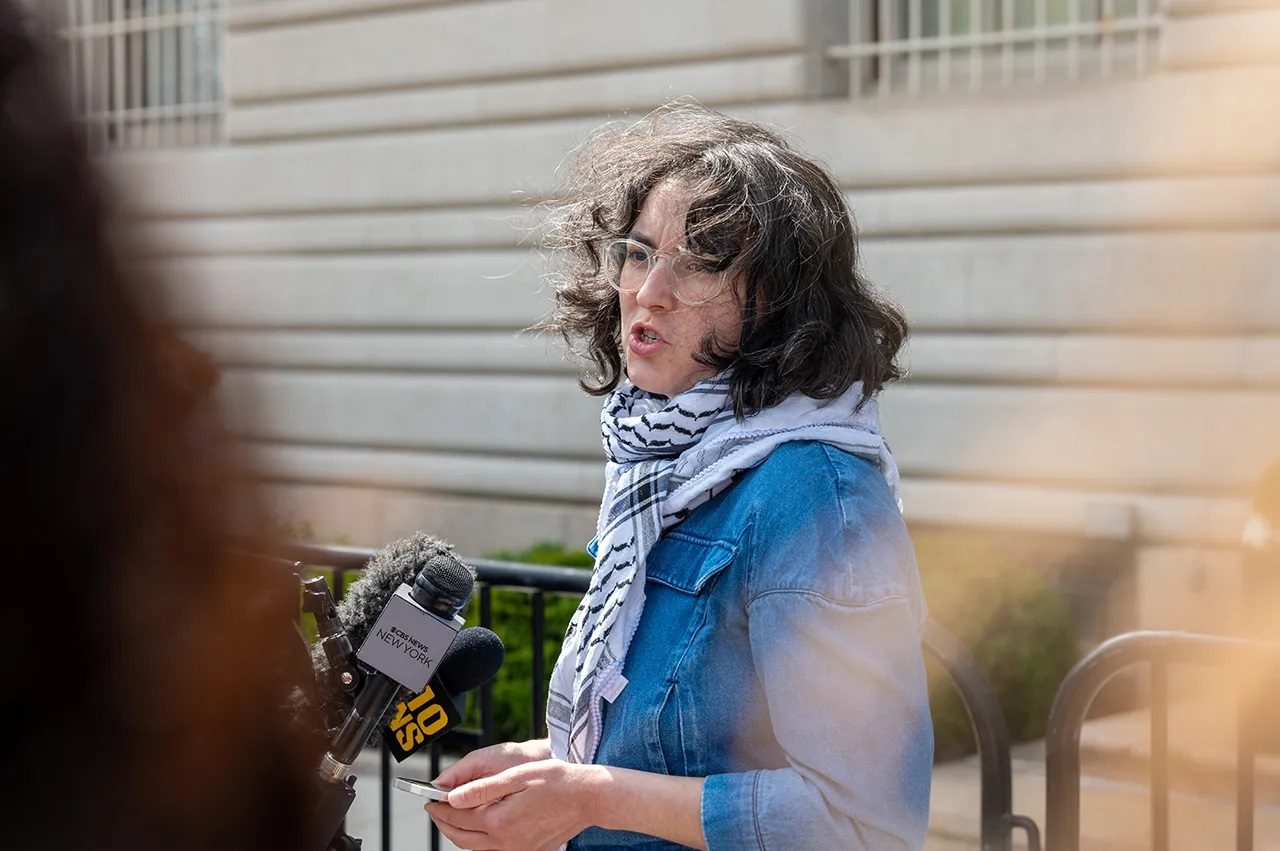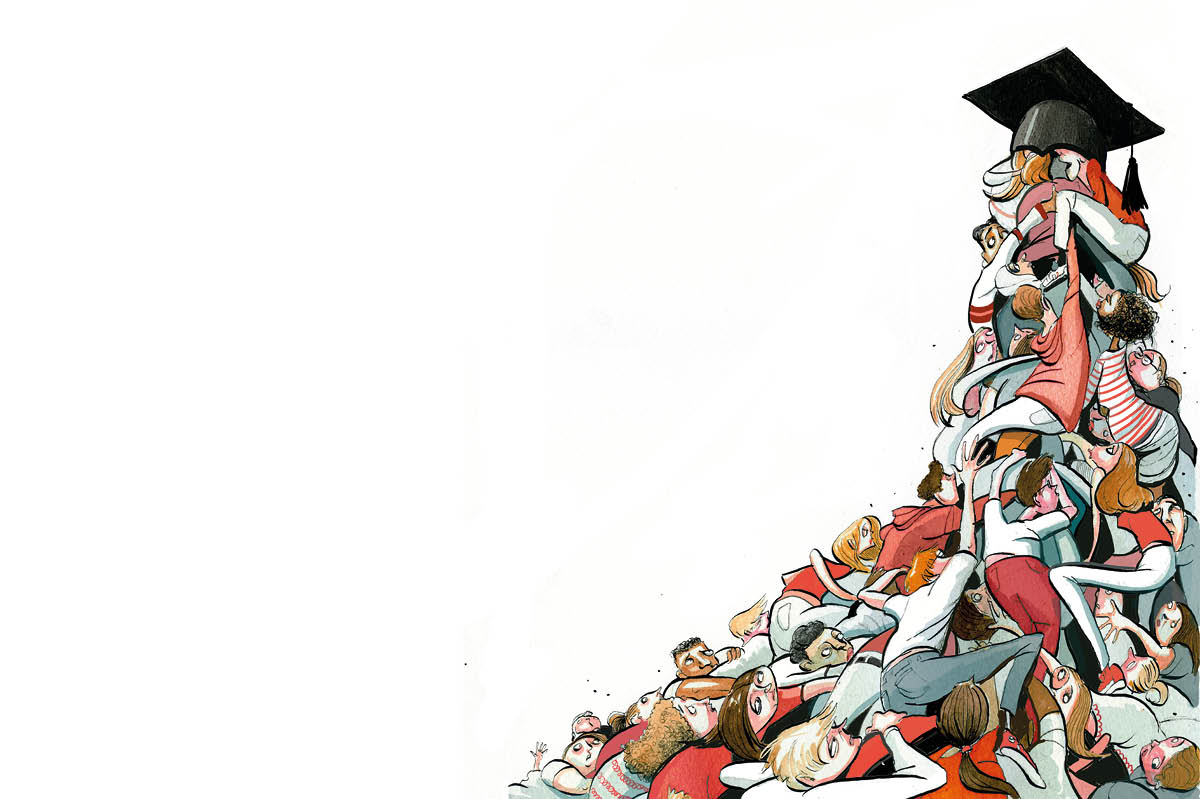This article is in The Spectator’s February 2020 US edition. Subscribe here.
Political tribalism is high school all over again. I moved every year and a half growing up, and one of the many side effects was that I became deeply distrustful of groups. I went to 10 schools in 12 years — three of them in eighth grade. It was hell. I was always the outsider. If I was acknowledged at all, it was as ‘new girl’ and, once they got to know me a bit better, ‘Bitchit’ or, my personal favorite, ‘Birdshit’. I went to schools in rich suburbs where I was ‘poor’ and schools in inner cities where I was the minority. I ate lunch alone at Catholic schools and public schools, schools in the Midwest and schools in small towns on the East Coast. I was told to ‘go back to where I came from’ after we’d moved from one town in Connecticut to another town in Connecticut.
When I was 14, a girl smacked me because her boyfriend said ‘Hi’ to me. I remember the way it felt when my head hit the cold tile walls of the middle-school bathroom like it was yesterday. I didn’t even know who her boyfriend was. My sophomore year, a clique decided I was a slut. I’d never even gone to third base. It didn’t matter. So, against the advice of the other nerds who were constantly bullied, I confronted the tribe leader in the lunchroom and asked her, ‘Why are you telling everyone I’m a slut? You don’t even know me.’ Well, it didn’t matter that she didn’t know me. She’d made up her mind. And confronting her only made it worse. I should have listened to the nerds. After that, I was driven off roads, shoved in lockers, ostracized.
I learned a lot all those years being an outsider looking in, but one lesson about herds stuck with me the most: they’re all the same. Sure their features might be different — maybe they rally around a sport, their love of theater, their neighborhood, their race or their hatred of authority — but they all behave the same and, ironically, a defining characteristic for every group is that they all fancy themselves different. They aren’t.
Which brings me to modern online mobs and the recently inescapable concept of ‘cancel culture’. I reckon we’ve been living under mob law for over six years now. It was December 20, 2013 when I noticed #HasJustineLandedYet was trending. What I witnessed was appalling. It wasn’t the tweet that read, ‘Going to Africa. Hope I don’t get AIDS. Just kidding. I’m white!’ That was just a bad joke in poor taste. It was the swarm of frenzied people online, ruining a stranger’s life while she slept on a plane. When she took off, Justine Sacco was an unknown PR executive. By the time she landed she had gone viral and no longer had a job. Today she’s the first thing that comes up when you google ‘Who was the first person whose life was ruined by a tweet?’
Public shaming has come back with a vengeance and Twitter is our lunchroom. The pitchfork mob is an old trope, and in the age of social media we have the largest mobs in the history of mankind. Think of those movies that show a nasty mob gathering; take those crowds and add at least 100,000 and you have some idea of an average day on Twitter.
Herds give people the power to be cruel. Herd mentality emboldens people to do or say things they wouldn’t do or say on their own. Herds collectively decide who are outsiders and apply that label to individuals or groups, despite what may or may not be true.
Somewhere along the way we’ve turned opinion into right or wrong, and if someone has the ‘wrong’ opinion, you’re justified in joining a mob and exacting immediate justice by wrecking a stranger’s life. (This is true for Trumpists and social justice warriors — it just depends on the cult.) And it’s hard to draw the line about which mobs are acceptable and which mobs aren’t. Do the torch-carrying white-supremacist morons deserve to get mobbed? Probably. But the Parkland kids or the Covington kids? Opinions will vary depending on which clique you belong to. Did Justine Sacco deserve to have her life blown up? Whether or not vigilante justice is warranted, in an era where iPhones are ubiquitous and uploads immediate, if you’re marching with white nationalists or calling the cops on a BBQ or tweeting about politics or making jokes, you’re pretty much assuring your own demise.
So, if you’re going to resist anything, resist the pressure to join a tribe, no matter how seductive. If you do identify as part of a group, be critical of it, don’t drink the Kool-Aid, and be aware if you’re attacking apostates for what you perceive as heresy. Resist the temptation to partake in online pile-ons. Calling someone ‘garbage’ with 10,000 other people and justifying it to yourself as fighting systemic injustice might not be making the point you think you’re making.
Never in all my life did I think that falling somewhere in between the left and the right on the political spectrum would trigger so much of that old, buried junior-high angst. Because, as someone who has been mobbed by all kinds of groups online (and off), I’m here to tell you: it’s all the same. Tribalism, just like high school, brings out the worst in people. A mob is a mob is a mob.
This article is in The Spectator’s February 2020 US edition. Subscribe here.

























